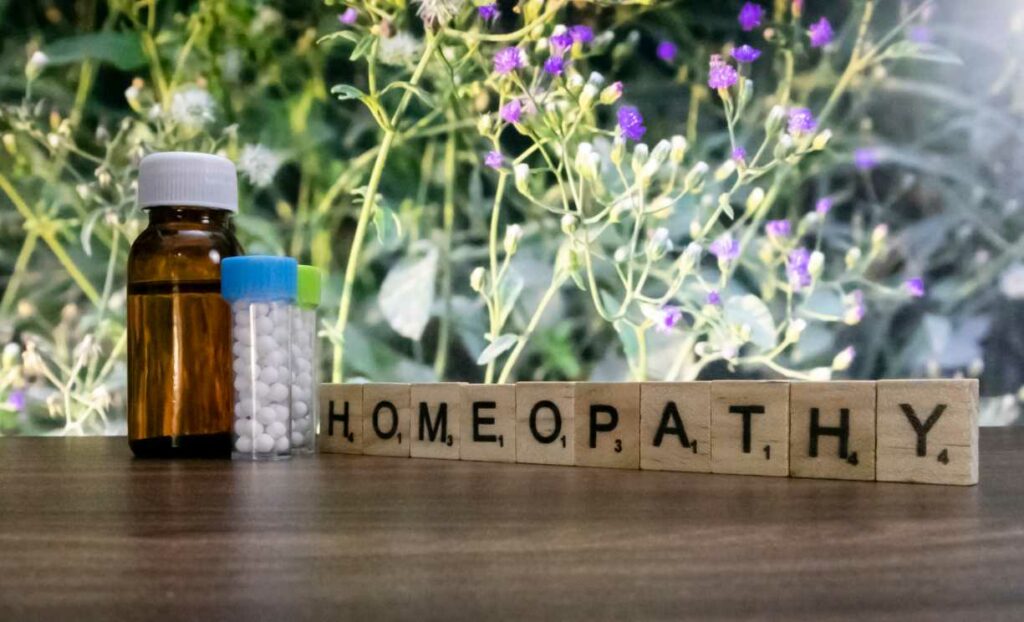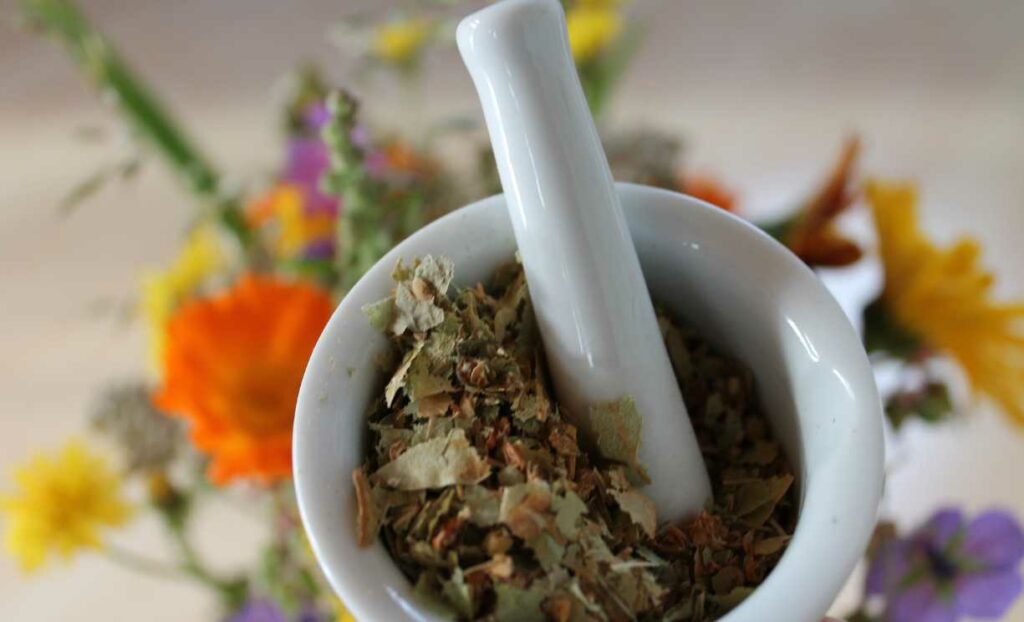Hot flashes, an unwelcome companion in the menopausal journey, can disrupt daily life and leave many seeking relief. While conventional treatments exist, some individuals explore homeopathic remedies as a natural alternative. In this blog, we’ll explore the world of homeopathy and explore some of the best homeopathic medicine for managing hot flashes.
Contents
Best Homeopathic Medicine For Hot Flashes
In homeopathy, the choice of the best medicine depends on individual symptoms and constitution. Here are some common homeopathic medicines for hot flashes:
Lachesis
Derived from the venom of the bushmaster snake, Lachesis is a homeopathic remedy often recommended for intense hot flashes. Women experiencing heat that rises up and seems to be concentrated around the face or head may find relief with this remedy. Additionally, it may address associated symptoms like irritability and restlessness.
Sepia
Sepia, derived from the ink of the cuttlefish, is a versatile homeopathic remedy. It is for women experiencing hormonal fluctuations leading to hot flashes, especially those with feelings of indifference, and irritability.
Sanguinaria Canadensis
Known as bloodroot, Sanguinaria Canadensis is a homeopathic remedy indicated for hot flashes with intense, burning sensations. Women who experience flashes that start in the chest and move upward may find relief with this remedy. It’s also associated with addressing headaches and migraines.
Glonoinum
Glonoinum, derived from nitroglycerin, is often recommended for hot flashes with a prominent sensation of heat in the head. If flashes are accompanied by throbbing headaches or a feeling of congestion in the head, Glonoinum may offer relief.
Pulsatilla
Pulsatilla, extracted from the windflower, is a remedy suited for women who experience mild, weepy, and changeable moods along with hot flashes. It is often recommended for those who find relief in open air and cool environments.
Belladonna
Belladonna, derived from the deadly nightshade plant, is indicated for sudden and intense hot flashes with a flushed face. If the heat is accompanied by pulsating headaches and a sensation of fullness, Belladonna may be considered.
Amylenum Nitrosum
Amylenum Nitrosum, made from amyl nitrate, is a homeopathic remedy recommended for individuals experiencing sudden and unpredictable hot flashes. It may be particularly beneficial for those with a tendency to blush easily.
Natrum Muriaticum
Natrum Muriaticum, derived from common salt, is a homeopathic remedy suitable for women experiencing hot flashes with a sense of profound sadness or grief. It is for situations when emotional factors contribute to the intensity of hot flashes.
Is Homeopathy Effective?
The effectiveness of homeopathy is a subject of ongoing debate. Homeopathy operates on the principle of “like cures like,” using highly diluted substances to stimulate the body’s self-healing mechanisms. Some people report positive outcomes and relief from symptoms with homeopathic treatments, especially for conditions with a strong mind-body connection. However, scientific evidence supporting the efficacy of homeopathy is not much, and studies often show mixed results.
While some individuals may experience benefits, others may not find it as effective. It’s crucial for individuals considering homeopathy to consult with a qualified healthcare professional, remain open to a variety of treatment options, and prioritize evidence-based practices for their overall well-being.
Lifestyle Changes For Managing Hot Flashes During Menopause
Managing hot flashes during menopause often involves incorporating lifestyle changes that can help alleviate symptoms and improve overall well-being. Here are some effective lifestyle adjustments:
- Dress in Layers: Wearing lightweight, breathable fabrics and dressing in layers allows for better temperature control. This helps manage sudden temperature fluctuations associated with hot flashes.
- Stay Hydrated: Drinking plenty of water is essential to stay hydrated and may help regulate body temperature. Avoiding caffeine and alcohol, which can contribute to dehydration, is also advisable.
- Maintain a Healthy Weight: Achieving and maintaining a healthy weight can positively impact hormonal balance and reduce the severity and frequency of hot flashes.
- Regular Exercise: Engaging in regular physical activity can help regulate hormones, improve mood, and contribute to overall well-being. Choose activities you enjoy, such as walking, swimming, or yoga.
- Cooling Strategies: Keep your living and sleeping spaces cool. Use fans, wear lightweight clothing, and consider cooling pillows to enhance comfort during the night.
- Healthy Diet: Consume a balanced diet rich in fruits, vegetables, and whole grains. Limit spicy foods, caffeine, and alcohol, as they may trigger hot flashes in some individuals.
- Acupuncture: Some women find relief from hot flashes through acupuncture. This traditional Chinese medicine technique involves inserting thin needles into specific points on the body to promote balance and alleviate symptoms.
- Quality Sleep: Establishing a consistent sleep routine and creating a cool, comfortable sleeping environment can contribute to better sleep quality, reducing the impact of nighttime hot flashes.
- Seek Support: Share your experiences with friends, family, or support groups. Connecting with others who are going through similar experiences can provide emotional support and helpful coping strategies.
Seeking Individualized Care Is Important
While these homeopathic remedies offer potential relief, it’s crucial to approach homeopathy with an understanding that individual responses vary.
Seeking individualized care means tailoring healthcare and treatment plans to meet the specific needs and characteristics of each person. It recognizes that every individual is unique, and what works for one person may not work the same way for another. When it comes to managing health conditions, such as menopausal symptoms like hot flashes, seeking individualized care involves working closely with a healthcare provider who takes into account your personal health history, lifestyle, preferences, and the specific nature of your symptoms.
This approach ensures that the care you receive care to address your individual circumstances, increasing the likelihood of effective and meaningful outcomes. It fosters a partnership between you and your healthcare provider, allowing for open communication and collaborative decision-making in your healthcare journey.
Conclusion
In conclusion, navigating the realm of homeopathic medicine for managing hot flashes during menopause opens up a spectrum of natural possibilities. The diverse remedies, such as Lachesis, Sepia, and Sanguinaria Canadensis, offer potential relief based on individual symptoms and constitution. It’s important to recognize that the effectiveness of homeopathic treatments is highly personal, and what works for one person may differ for another.
Remember that the journey through menopause is unique for each woman, and finding the best homeopathic medicine involves careful consideration of individual responses. By exploring these natural alternatives with the guidance of a healthcare professional, women can navigate menopausal hot flashes with a sense of empowerment and tailored support.




